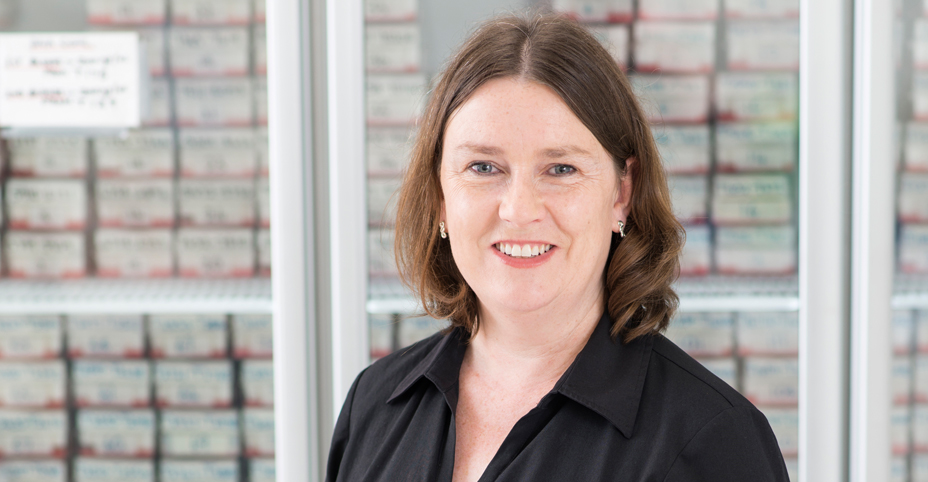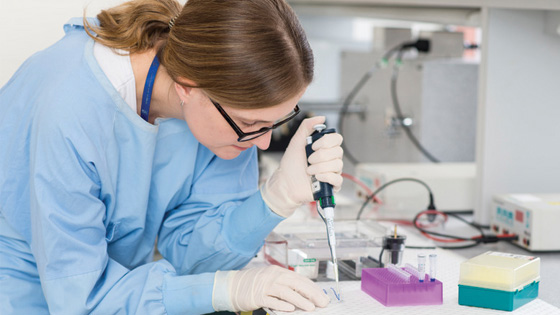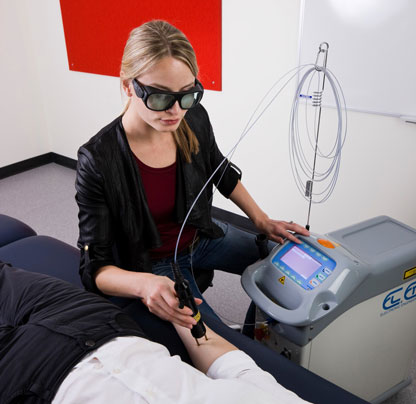
Associate Professor Leanne Dibbens heads the Epilepsy Genetics Research Group at the Sansom Institute at the University of South Australia.
With 4 August marking this year’s Jeans for Genes Day, people continue to unite in support of genetic research to help improve people’s quality of life. This is also of utmost importance to researchers at the University of South Australia, who are dedicated to working towards identifying the genes that cause epilepsy, neurological disorders, and psychiatric disorders.
It is estimated that 10 per cent of the population are at risk of experiencing a seizure of the course of their lifetime, and roughly three to four per cent of people will be diagnosed with the brain function disorder, epilepsy.
Geneticist and Molecular Biologist Associate Professor Leanne Dibbens and her team of scientists are at the forefront of research which identifies the genes responsible for epilepsy. As well as this, the team has been able to identify genes responsible for a wide range of neurological and psychiatric disorders which are often inherited via genetic mutations, such as muscular dystrophy.
Over the past 20 years, Assoc Prof Dibbens has collected one of the largest pools of genetic data from those suffering from epilepsy. This continued research has led to the discovery of new gene mutations which cause the disorder.
“Our research group has already discovered around 30 new genes which are linked to a dozen different epilepsy syndromes,” says Assoc Prof Dibbens.
“We’ve made a significant contribution to the field, but it can take years of research to uncover just one new gene.”
In fact, Assoc Prof Dibbens and her team have estimated that researchers all around the globe have only found the genetic cause of just five to ten per cent of all epilepsy cases. Currently, there are roughly 30 known types of epilepsy, each causing different seizure frequency and severity. Assoc Prof Dibben’s continued efforts are working towards finding the answers for those affected by the disorder, as well as preventing further deaths from it.
“Without a genetic diagnosis, patients are essentially medicated through a process of trial and error, but if we can locate the exact gene that has caused the epilepsy, then we can provide personalised medicine which targets the mutation and has a higher chance of being effective.
“We can also predict whether other family members are at risk of developing the disorder and provide genetic counselling.”
The team have made significant findings in recent years, with the discovery of the PCDH19 gene which results in a type of epilepsy that affects only females being one of their more prominent breakthroughs.
UniSA’s Epilepsy Research Group often collaborates with a wide range of people from around the globe including doctors, neurologists, and clinicians. These collaborators provide the team with blood samples from epilepsy patients, allowing the team to further their research.
The team is currently investigating other neurological disorders like intellectual disabilities and autism, as well as psychiatric conditions such as depression. It is approximated that 30 per cent of epilepsy sufferers also have clinical depression and are three times more likely to be prescribed antidepressant medications than the rest of the population.
“Moving forward, we’re focussed on creating better therapies for the range of neurological conditions we work across.
“Much of the medication available to epilepsy patients is somewhat ineffective and around 30 per cent of sufferers cannot control their seizures through existing drugs.
“Some people take four or five medications concurrently to try to control their seizures but by this point people are often sedated and feeling nauseous; it is not uncommon for sufferers to stop taking medication altogether because the side effects can be so awful.”
To support UniSA to continue their research in epilepsy, as well as a long list of other research, please make a donation online.

100% of your gift will go directly to support health research at UniSA - there are no administration fees, no overheads and no hidden costs.
Support our researchers continue their work in preventing illness, improving health systems and services, creating more effective therapies, and advancing health equality.
